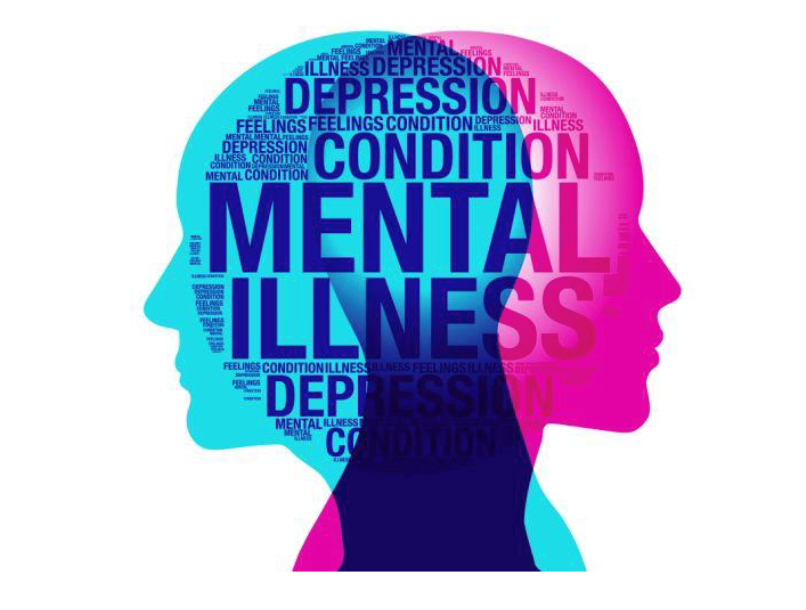Recognizing the Influence of Workout on Mental Wellness and General Wellness
In the world of mental wellness and total health, the importance of exercise is a multifaceted topic that warrants expedition. Past its physical benefits, the effect of workout on one's mental wellness has been a topic of expanding rate of interest and research study. The intricate interplay in between exercise and psychological wellness introduces a spectrum of favorable end results that prolong much beyond the confines of a fitness center or a running track. As we navigate with the intricacies of this connection, a much deeper understanding of exactly how exercise influences our psychological state and overall wellness arises, shedding light on the extensive ramifications it holds for our lives and long-lasting health and wellness.
Advantages of Exercise on Mental Health And Wellness

Normal workout has actually been revealed to substantially boost mental wellness results in individuals of any ages. Participating in routine exercise not just benefits physical wellness yet likewise plays an essential function in improving mental health and wellness. One of the key benefits of exercise is its ability to reduce signs of anxiety and depression. Physical activity promotes the launch of endorphins, likewise called the "feel-good" hormones, which can assist ease sensations of stress and anxiety and improve state of mind.
In addition, exercise has been linked to improved cognitive function and overall brain health and wellness. In addition, exercise promotes far better sleep patterns, which are essential for keeping good psychological wellness.
Connection Between Workout and Tension
Exercise serves as a powerful mechanism for alleviating stress and advertising mental well-being by helping with the launch of endorphins and promoting a sense of leisure and rejuvenation. Exercise advertises the production of endorphins, often referred to as the body's all-natural medicines, which act as state of mind lifts and stress and anxiety relievers.
Engaging in physical activity additionally supplies a disturbance from everyday stress factors, enabling people to concentrate on the here and now moment as opposed to ruminating on resources of stress. Furthermore, workout can boost self-worth and self-confidence, supplying a sense of accomplishment and control that can fight feelings of helplessness commonly connected with anxiety. By integrating workout into a normal regimen, individuals can efficiently handle stress and anxiety levels, resulting in improved mental well-being and overall lifestyle.
Impact of Workout on State Of Mind
Engaging in physical task has actually been shown to significantly affect one's mood and psychological health. The partnership between workout and state of mind is well-documented, with numerous research studies highlighting the positive results of physical task on psychological health and wellness. When we take part in workout, our bodies release endorphins, typically referred to as "feel-good" hormonal agents, which can assist relieve sensations of anxiety, tension, and anxiousness. Furthermore, routine workout can result in enhanced self-esteem and a feeling of achievement, which can better boost one's total mood.
Additionally, the effect of exercise on mood prolongs past simply the instant post-workout period. Research suggests that individuals that keep a consistent workout regimen are most likely to experience long-lasting improvements in their mood and psychological state. This can be connected to the architectural changes in the mind that occur as a result of normal exercise, such as increased connection between brain regions in charge of controling emotions.
Workout and Cognitive Feature
Countless research studies have shown the substantial impact of physical task on cognitive function, highlighting the intricate connection between workout and psychological processes. Engaging in regular exercise has been revealed to enhance different elements of cognitive feature, including memory, attention span, analytical abilities, and overall mental skill.
Moreover, regular physical task has actually been linked to a minimized danger of cognitive decrease and neurodegenerative diseases such blog here as Alzheimer's. Studies suggest that individuals that maintain an energetic way of life throughout their lives experience slower prices of cognitive decrease contrasted to those that are inactive. Generally, the evidence extremely supports the notion that regular exercise is not just beneficial for physical wellness but additionally plays a crucial function in preserving and improving cognitive function.
Techniques for Incorporating Workout
Embracing an organized strategy to incorporating exercise into day-to-day regimens can substantially improve the probability of keeping a constant exercise regimen. One reliable technique is to set details, achievable objectives. These goals need to be realistic and tailored to individual abilities to avoid sensations of failure and guarantee motivation. Additionally, including exercise into existing regimens, such as strolling or cycling to work, taking the staircases as opposed to the lift, or organizing normal exercise sessions, can assist make exercise a regular component of day-to-day live.
Another valuable tactic is to find tasks that read the full info here are pleasurable. Whether it's dance, swimming, yoga exercise, or cycling, involving in tasks that bring pleasure boosts the possibilities of sticking with the workout routine in the future. Differing the types of workouts and establishing aside time for both strength-training and cardio tasks can protect against dullness and give an alternative strategy to physical fitness.
Integrating workout into social tasks, such as joining a sports group or exercise team, can additionally foster a sense of community support and accountability, making it much easier to stay committed to normal workout. By implementing these methods, people can create a sustainable and fulfilling workout routine that promotes psychological health and total wellness.
Conclusion
In verdict, workout has various advantages for mental wellness and general health. By comprehending the impact of exercise on psychological health, individuals can take aggressive steps to prioritize their physical activity and reap the positive effects on their emotional and mental state.
